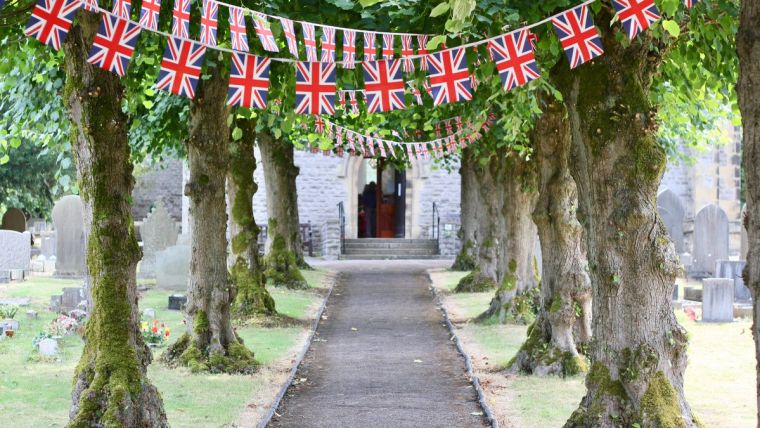Church of England unveils strategy to help its rural churches thrive

The Church of England has launched a 10-point strategy to help its thousands of rural churches survive and thrive.
Many provided cool sanctuaries during the recent record-breaking temperatures – but they have the potential to play a much more strategic community role.
The CofE has published 'How Village Churches Thrive,' a practical guide to help the churches – many of them historic listed buildings with small congregations – have a sustainable future.
The strategy sets out 10 key areas "where applying relatively small changes can make a big difference to the revitalisation, recovery and renewal of our village churches, amplifying the efforts that may well be happening already."
The publication comes as many rural churches are facing increasing pressures – financial, demographic and with the upkeep of buildings – to continue as centres of mission and ministry.
In many places, one priest will serve several congregations, going from church to church each Sunday, or across a month.
The 10 key recommendations set out in the strategy are:
Extend a warm welcome. Think carefully and objectively about who your welcome is aimed at. Structure your welcome around strangers to the church, rather than those who are already friends.
Make the most of life events – weddings, baptisms and funerals. Many people's first contact with church begins through the church being there for them at life's big moments.
Use buildings creatively. With thought and planning, your buildings can provide opportunities for people to connect with the community.
Care for 'God's Acre.' Your churchyard can be a haven for wildlife, and for people too. You can engage the whole community in loving and caring for the churchyard.
Be the 'heartbeat' of a village community. Your church could affect positive change in village life. Leading a community audit could be an important place to start.
Celebrate your heritage. The history of the church buildings presents an opportunity for churches to connect with new people of all ages and backgrounds.
Cultivate fruitful festivals. Festivals across the year provide ideal opportunities to celebrate, be innovative and creative, and – in partnership with schools, businesses and local groups – to welcome others of every age group.
Welcome more children. Engaging with younger people is a priority for the CofE nationally – and village settings can offer great opportunities for creative ministry with children. Projects formed in partnership, especially with local schools, are most likely to thrive.
Reach the isolated and lonely. Village churches are in 'the perfect position' to make a positive impact on isolation and loneliness.
Communicate effectively. Focused communication supports your parish vision and strategy and ensures that all your efforts have more chance of being effective.
Comedian Hugh Dennis, whose father was a bishop of a largely rural diocese, wrote the foreword for the guide. He commended the strategy for identifying "simple ideas to involve people of all ages in building a welcoming, long lasting and thriving church community."
Church House Publishing, who published the new guide, describe it as "Packed with practical advice and inspiring case studies to encourage and increase confidence in all who work or worship in a village church."
All the book's contributors are active in supporting the growth of rural churches through their roles in the Church of England or through organisations such as the Arthur Rank Centre, the Churches Conservation Trust, and Caring for God's Acre.
Rev Peter Crumpler is a Church of England minister in St Albans, Herts, UK, and the author of 'Responding to Post-truth.'











